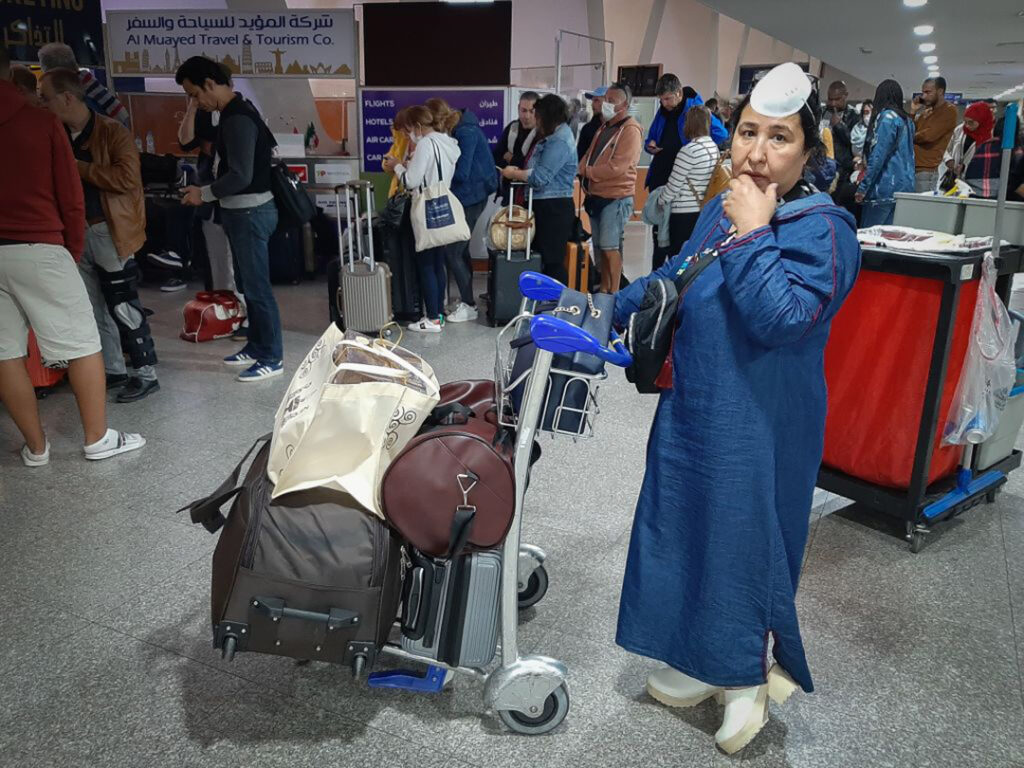ADF STAFF
Morocco has taken extraordinary measures to prevent travelers from bringing new COVID-19 variants into the country.
On November 29, Morocco issued a two-week ban on all incoming flights as the variant known as omicron began to spread across the globe.
“The decision has been taken because of the quick spread of the new COVID variant, omicron, namely in Europe and Africa, and in order … to protect the health of Moroccan citizens,” the committee that oversees Morocco’s COVID-19 response said in a statement.
Two weeks before the flight ban, Morocco started rapid COVID-19 testing for travelers entering the country’s airports and ports to ward off a fourth wave of COVID-19 infections.
That measure enhanced a requirement that travelers to Morocco must produce a negative COVID-19 test before boarding a plane to travel to the country. The government’s decision was made after a recommendation by its Interministerial COVID Monitoring Committee.
Additionally, Morocco had announced plans to install thermal cameras, electronic thermometers and antigenic tests to verify that people arriving from high-risk countries are healthy, Morocco World News reported. The government also will deploy medical teams to ports and airports around the country.
“The new omicron variant seems to be transmitted easily, but we don’t have time to get a feel for it yet, but I think they are doing what is necessary,” Agraou Benissa, a doctor working in Rabat, told africanews.com.
Omicron Strain Emerges
The World Health Organization (WHO) classified the new omicron strain as highly transmissible and suggested it could pose greater risks than the delta variant, which has fueled waves of infections around the world.
Early evidence showed an increased risk of reinfection compared to other COVID-19 variants, and omicron was detected at faster rates than previous strains, the WHO said in a statement. By November 29, omicron had been detected in 11 countries after first being detected in South Africa.
The heavily mutated omicron variant was responsible for an “exponential” uptick in reported cases, making it “a major threat,” South African Health Minister Joe Phaahla told Al-Jazeera.
Although the emergence of the new strain triggered worldwide alarm, Danny Altmann, professor of immunology at Imperial College London, told africanews.com that South African health officials were “terribly speedy and vigilant” in reporting it.
“But I just feel that we were so slow to act on delta and the whole world paid such a high price for it,” Altmann told the news outlet. “Let’s try and be forewarned and do it properly this time. So, I think [the global reaction] probably is warranted.”
For its part, Morocco has instituted a national surveillance plan that performs genomic sequencing on COVID-19 samples to detect variants. The effort, led by the Ministry of Health, includes sequencing of random samples, samples from regions across the country, and samples of cases of varying severity ranging from mild to severe. The sequencing occurs at the Pasteur Institute of Morocco and other laboratories.
The omicron variant had not been reported in Morocco by the end of November.

